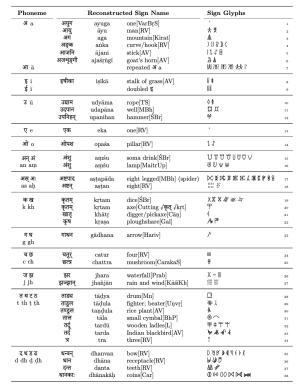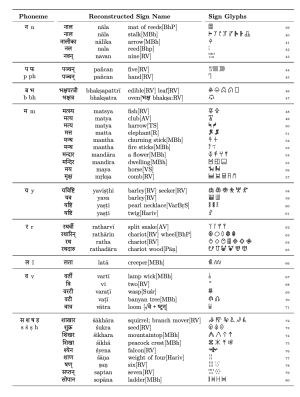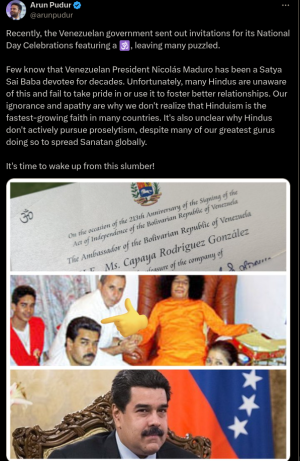You are using an out of date browser. It may not display this or other websites correctly.
You should upgrade or use an alternative browser.
You should upgrade or use an alternative browser.
Indian Culture and society
- Thread starter haldilal
- Start date
More options
Who Replied?- Joined
- Jun 30, 2024
- Messages
- 161
- Likes
- 891
Give it a watch y'all
Ballad of king vahram
The text expresses the hope of the era's Iranians, who await the coming of a Zoroastrian messianic figure called Shah Vahram Varzavand, a figure who will come from India, overthrow the Arab invaders and restore native Iranian and Zoroastrian rule to the land. The poem can essentially be contextualised as a "wish-image" of the oppressed Zoroastrian Iranians yearning for the return of the previous state of rule. The figure of Shah Vahram as a messianic figure carries with him the weight of Iranian mythology, as he is said to be of the lineage of the Kayanian--the mythological dynasty of Iran who was said to have ruled at the beginning of the world, and the dynasty around which the Shahnameh epic revolves. The poem can therefore be described as both a deeply nationalistic and religious one; the two concepts being intertwined in this historical context, with Zoroastrianism being one with the concept of Iranian identity in the eyes of the text's writer(s).
Ballad of king vahram
The text expresses the hope of the era's Iranians, who await the coming of a Zoroastrian messianic figure called Shah Vahram Varzavand, a figure who will come from India, overthrow the Arab invaders and restore native Iranian and Zoroastrian rule to the land. The poem can essentially be contextualised as a "wish-image" of the oppressed Zoroastrian Iranians yearning for the return of the previous state of rule. The figure of Shah Vahram as a messianic figure carries with him the weight of Iranian mythology, as he is said to be of the lineage of the Kayanian--the mythological dynasty of Iran who was said to have ruled at the beginning of the world, and the dynasty around which the Shahnameh epic revolves. The poem can therefore be described as both a deeply nationalistic and religious one; the two concepts being intertwined in this historical context, with Zoroastrianism being one with the concept of Iranian identity in the eyes of the text's writer(s).
- Joined
- Jun 27, 2024
- Messages
- 232
- Likes
- 1,315
- Joined
- Jun 27, 2024
- Messages
- 1,274
- Likes
- 3,284
Why is your Indian society so much Infatuated with Civil services??
It is a sure shot path to amass enormous wealth:
View: https://twitter.com/avijeet_writes/status/1809430228776738932
It is a sure shot path to amass enormous wealth:
View: https://twitter.com/avijeet_writes/status/1809430228776738932
- Joined
- Jul 1, 2024
- Messages
- 768
- Likes
- 3,359
Give it a watch y'all
Ballad of king vahram
The text expresses the hope of the era's Iranians, who await the coming of a Zoroastrian messianic figure called Shah Vahram Varzavand, a figure who will come from India, overthrow the Arab invaders and restore native Iranian and Zoroastrian rule to the land. The poem can essentially be contextualised as a "wish-image" of the oppressed Zoroastrian Iranians yearning for the return of the previous state of rule. The figure of Shah Vahram as a messianic figure carries with him the weight of Iranian mythology, as he is said to be of the lineage of the Kayanian--the mythological dynasty of Iran who was said to have ruled at the beginning of the world, and the dynasty around which the Shahnameh epic revolves. The poem can therefore be described as both a deeply nationalistic and religious one; the two concepts being intertwined in this historical context, with Zoroastrianism being one with the concept of Iranian identity in the eyes of the text's writer(s).
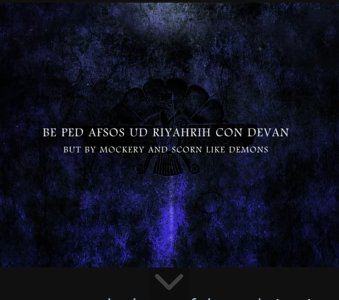
I hope you guys take a good look at the words of the lyrics & it's translation in the SS .
Even when they were completely finished off by the Arabs , they still yearn for deliverance by a Persian descendant of a mythical line of Kavis or Kings complaining about how the Arabs tricked them into slavery like demons aka Daevas or Devas.
To those who're unaware Asuras or Ahuras are divine beings in their religious pantheon while Daevas are demons the very opposite of our belief system.
Although the Zoroastrians are a dying religion in both Iran & India & have never gone against the interest of India by far & large though they were for the most in good books of the British which is how they made their fortunes , let's not get carried away by emotions every time we're summoned to help out others.
More often than not if you shelter people with diametrically opposite beliefs to yours you're only creating grave problems for your future generations.
The partition is good example of what I was aiming to illustrate
- Joined
- Jul 1, 2024
- Messages
- 768
- Likes
- 3,359

Why Bengal owes much of its food and language to the Portuguese
Although the Portuguese had arrived before the British, they were seen as a “shadow empire”. Despite this, they had a significant influence on all things Bengali — from Rasgullas to the Bangla language.
Udi baba ! As per this article the Bengali language owes a lot to the Portuguese. What's more , popular Bengali delicacies like rosogulla is also courtesy the Portuguese.
Wonder how will the Baudhijibbi Bhadralok take this bit of discovery. Just for confirmation , the author appears to be of Marwari descent .
- Joined
- Jul 1, 2024
- Messages
- 768
- Likes
- 3,359
- Joined
- Jun 27, 2024
- Messages
- 1,274
- Likes
- 3,284
Back then we might have been clumsy, but we were not dirty!
Streets in most old pics and videos looks virtually clean - cities and villages both.
We messed up after Independence on cleanliness.
- Joined
- Jul 1, 2024
- Messages
- 463
- Likes
- 943
Back then we might have been clumsy, but we were not dirty!
Streets in most old pics and videos looks virtually clean - cities and villages both.
We messed up after Independence on cleanliness.
Plastic and nodisposable items ruined India. Back then it was clean because virtually the trash were biodegradable and all the poop were easily swept up and burnt as fuel.
- Joined
- Jul 1, 2024
- Messages
- 768
- Likes
- 3,359
View: https://youtu.be/t0CouQt7uUE?si=I8kdh5i4Rd44OTOw
The 10 day Ganesh Mahotsav Celebrations in Mumbai circa 1931.
- Joined
- Jul 1, 2024
- Messages
- 768
- Likes
- 3,359
View: https://youtube.com/shorts/3-5NKyuUabE?si=pRaEc-tZZR-mKpuJ
This is one among the many justifications for urgent de centralisation & empowerment of local self governments including Gram Panchayats , Zilla Parishads , Municipal Councils , Municipal Corporations , etc .
- Joined
- Jul 1, 2024
- Messages
- 768
- Likes
- 3,359
View: https://twitter.com/CaptDKS/status/1810893957368361356?s=19
View: https://twitter.com/sanjeevsanyal/status/1810898679097634936?s=19
Like many other traditional art forms & crafts , this is a dying one. This particular endeavour is the brain child of Sanjeev Sanyal who got together the Ministry of Culture & the Indian Navy to sponsor it . Apparently they're going to sail it sometime this year in an expedition.
- Joined
- Jul 1, 2024
- Messages
- 247
- Likes
- 1,655
JNU Sets Up New Centres For Hindu, Buddhist, And Jain Studies - All You Need To Know
“The Executive Council in its meeting held on 29.05.2024 has approved the recommendation of the committee constituted to explore and recommend on NEP-2020 and Indian Knowledge System and its further implementation in the University, and establishing of following centres within the School of Sanskrit and Indic Studies,” read a notification dated 9 July.
- Joined
- Jun 30, 2024
- Messages
- 550
- Likes
- 2,223
Something regarding India's ancient iron Smelting process
View: https://www.youtube.com/watch?v=gIEsyyCgB0g
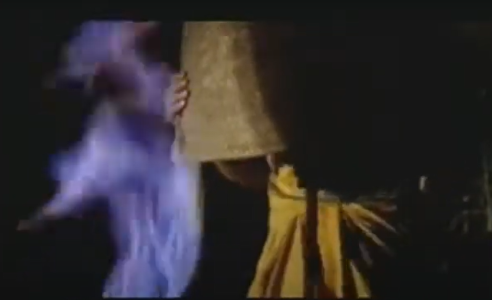
In this frame you can see carbon monoxide burning with a blue flame similar to that in a Bessemer process , seeing large flames like this proves that a the bellows are being pumped at a good rate and the smelting will be successful .
View: https://www.youtube.com/watch?v=o7Y1TUUDuvU
View: https://www.youtube.com/watch?v=b6JG2iolZbc
View: https://www.youtube.com/watch?v=gIEsyyCgB0g

In this frame you can see carbon monoxide burning with a blue flame similar to that in a Bessemer process , seeing large flames like this proves that a the bellows are being pumped at a good rate and the smelting will be successful .
View: https://www.youtube.com/watch?v=o7Y1TUUDuvU
View: https://www.youtube.com/watch?v=b6JG2iolZbc
- Joined
- Jun 27, 2024
- Messages
- 96
- Likes
- 316
Words of Savarkar
14 July,2024 06:54 AM IST | Mumbai | Devdutt Pattanaik
In Mumbai, there is a circle called Hutatma chowk. Most people do not know what it means. Many people assume it is the name of a person. However, it is a newly crafted Hindi/Sanskrit word for martyr. It is a neologism. A new word that was created to meet the new requirements of modern times. The word was invented by Savarkar.
We are so spellbound by the Savarkar-Gandhi rivalry, the Veer-Mahatma competition, the violent/non-violent politics, we ignore the role played by Savarkar in creating new words for a new India, for he was part of the Hindi/Urdu debate, and he wanted Hindu India to have Hindu words. Afterall words create worlds. So, some of the words he invented, which we still use today are:
>> Door-darshan for television
>> Akash-wani for radio
>> Door-dhwani for telephone
>> Vigyapan for advertisement.
>> Sampadak for editor
>> Dinank for date
>> Saptahik for weekly
>> Mahapaur for mayor
>> Mahapalika for municipality
>> Dig-darshak for director
Not all words he invented are used. For example, "bol-pat" for talkies as opposed to "chitra-pat" for movies. Some are used in Marathi only. Others only in Hindi. While the word ‘Hindutva' is attributed to him, it originated in Bengal in the late 19th century. That was an invention of Chandranath Basu.
The word "Shaheed" or martyr is a word with Muslim-Christian roots. He is one who dies defending the idea of God. The concept of martyr doesn't exist in Hinduism which is based on rebirth, an idea that does not need defence. Traditionally, the word "vir" was used for brave heroes. A "maha-vira" was a word used for an ascetic. One conquers or overpowers the mind of one who is brave enough to deal with the inner demons. For a patriot who dies while fighting for the cause of the nation, India had no word. Muslim soldiers introduced the idea of shaheed, mixing religion with patriotism. Savarkar, who had little love for all things Persian and Arabic, created a new word for Hindus therefore, Hutatma, from huta (sacrifice) and atma (soul).
In Hinduism there are words like paap and punya. The word paap is translated as sin, but sin is again a Christian concept and there is no English equivalent to the opposite of sin. So, what does punya actually mean? Words punya and paap come from a Hindu framework which is an accounting framework and deals with the accumulation of debit and credit. When you earn credit by generosity, it is punya, when you accumulate debit by consumption, it is paap. When you have no debit or credit it is moksha. These are completely ideas that are alien and cannot be translated in English.
Shakespeare invented nearly 1,000 words that we still use today (bedroom, critic, gossip, kissing, for example). Today we use words like software and hardware, which are new words to address new technology. We do not have any Hindi words for this and we accept it as normal. It has become part of modern language. Perhaps if Savarkar was alive, we would have come up with new words for software, hardware, computer, to prevent English words from "colonising" our mind.
14 July,2024 06:54 AM IST | Mumbai | Devdutt Pattanaik
In Mumbai, there is a circle called Hutatma chowk. Most people do not know what it means. Many people assume it is the name of a person. However, it is a newly crafted Hindi/Sanskrit word for martyr. It is a neologism. A new word that was created to meet the new requirements of modern times. The word was invented by Savarkar.
We are so spellbound by the Savarkar-Gandhi rivalry, the Veer-Mahatma competition, the violent/non-violent politics, we ignore the role played by Savarkar in creating new words for a new India, for he was part of the Hindi/Urdu debate, and he wanted Hindu India to have Hindu words. Afterall words create worlds. So, some of the words he invented, which we still use today are:
>> Door-darshan for television
>> Akash-wani for radio
>> Door-dhwani for telephone
>> Vigyapan for advertisement.
>> Sampadak for editor
>> Dinank for date
>> Saptahik for weekly
>> Mahapaur for mayor
>> Mahapalika for municipality
>> Dig-darshak for director
Not all words he invented are used. For example, "bol-pat" for talkies as opposed to "chitra-pat" for movies. Some are used in Marathi only. Others only in Hindi. While the word ‘Hindutva' is attributed to him, it originated in Bengal in the late 19th century. That was an invention of Chandranath Basu.
The word "Shaheed" or martyr is a word with Muslim-Christian roots. He is one who dies defending the idea of God. The concept of martyr doesn't exist in Hinduism which is based on rebirth, an idea that does not need defence. Traditionally, the word "vir" was used for brave heroes. A "maha-vira" was a word used for an ascetic. One conquers or overpowers the mind of one who is brave enough to deal with the inner demons. For a patriot who dies while fighting for the cause of the nation, India had no word. Muslim soldiers introduced the idea of shaheed, mixing religion with patriotism. Savarkar, who had little love for all things Persian and Arabic, created a new word for Hindus therefore, Hutatma, from huta (sacrifice) and atma (soul).
In Hinduism there are words like paap and punya. The word paap is translated as sin, but sin is again a Christian concept and there is no English equivalent to the opposite of sin. So, what does punya actually mean? Words punya and paap come from a Hindu framework which is an accounting framework and deals with the accumulation of debit and credit. When you earn credit by generosity, it is punya, when you accumulate debit by consumption, it is paap. When you have no debit or credit it is moksha. These are completely ideas that are alien and cannot be translated in English.
Shakespeare invented nearly 1,000 words that we still use today (bedroom, critic, gossip, kissing, for example). Today we use words like software and hardware, which are new words to address new technology. We do not have any Hindi words for this and we accept it as normal. It has become part of modern language. Perhaps if Savarkar was alive, we would have come up with new words for software, hardware, computer, to prevent English words from "colonising" our mind.
- Joined
- Jun 27, 2024
- Messages
- 1,274
- Likes
- 3,284
Indian contingent did great in recent International Maths Olympiad and reached 4th Spot:
View: https://x.com/IndianTechGuide/status/1814933335518683582
View: https://x.com/IndianTechGuide/status/1814933335518683582
- Joined
- Jun 27, 2024
- Messages
- 1,274
- Likes
- 3,284
Similar threads
- Replies
- 4
- Views
- 74
- Replies
- 0
- Views
- 106
Latest Replies
-
Chinese Economy Watch
- sameer
-
Israel Arab Conflicts
- Azaad
-
Indian Small Arms and Weapons
- Baseplate
-
Indian Special Forces
- Jedi Operator
-
Israel - Hamas Conflict
- DingDong
-
Brown Coolie Musings
- Blademaster
Trending Threads
Donate via Bitcoin - bc1qpc3h2l430vlfflc8w02t7qlkvltagt2y4k9dc2


